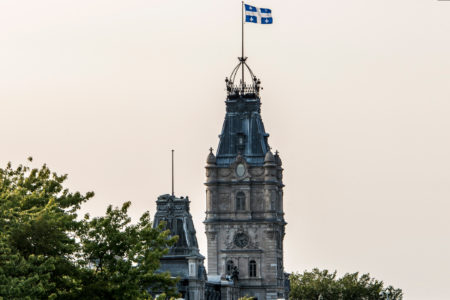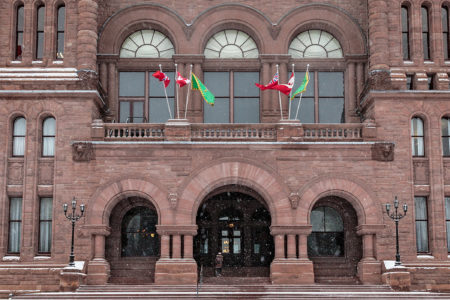
As someone who was elected for two terms and retired undefeated in 1993, I have grave misgivings about potential changes to the electoral system. As Paul Thomas points out in his excellent piece, all systems have flaws – particularly, in my view, proportional representation. Let me comment on that system first, even though with any luck it is the least likely to be adopted.
The “advantage” of proportional representation is that all parties get the number of MP’s relative to their share of the popular vote. Okay, I get it. But why should the head of a small — even though respected — party, such as the Green Party, get to select a list of candidates with no democratic basis? Leaders should work harder at the riding level to convince voters locally to nominate good candidates, and mobilize support behind them.
Paul Thomas did not touch on the fact that women’s groups are lobbying for proportional representation because they believe political parties would present party lists with a high proportion of women. This seems to be quotas under another name.
Having been elected twice and having fought very hard for my riding nomination in 1984, I always believed I was truly a representative of the people of St. Paul’s (Toronto). I would never have felt as comfortable if I had been chosen by a party list; nor is it likely I would ever have been chosen for a party list. And if there are to be a certain number of women, will there then be a certain number from particular racial groups or occupational groups, or sexual orientation? That is tantamount to saying people from these groups, however defined, can’t make it on their own. This is so wrong.
The second possibility is what I call the “waterfall,” although that is not the official name. One chooses number 1, number 2, number 3, etc., on the ballot, and by dropping the last place finisher off after the first count, and potentially the second count, eventually a winner has 50 percent of the vote. Its flaw, according to its detractors — and it is an important one — is that it favours the two-party system, particularly parties of the centre. It would not help the New Democratic Party, the Green Party or the Libertarian Party. In theory, however, it is a fair system and one I could reluctantly accept, if I have to accept something new.
That brings us to the system we have now: the first-past-the-post system. It has the disadvantage of depending very much on the relative popularity of party leaders and a good national organization, and it has less to do with individual candidates or party policies. However, nomination battles at the local level are fought fiercely, and they can bring out good candidates and increase party membership. And more marginalized parties do achieve representation under this system, even though it might take a long time. A case in point is Elizabeth May. It took a long time to rebuild the Conservative Party after the debacle of 1993, but for many it was worth it: in the end, the party had a solid ideology and was able to form government in the early 2000s.
And why shouldn’t it take a long time to achieve representation? One should not be able to invent a political party and sweep into Parliament with no thought and no record. The late Doug Henning (a charming man and a magician of note) was a founder of the Natural Law Party of Canada. He stood for election in Rosedale in 1993 (who knows what his party stood for?). In that election there were 10 candidates in that riding, including our perennial, tenacious Marxist-Leninist. Candidates do get to put forth their ideas, and that to me is an important part of an electoral system that has room for local candidates, however nutty.
Another possibility is a mixed system, with some locally elected and some chosen by leaders from a party list. So does that mean there would be an “inside” crowd, chosen by the leader, and an “outside” crowd, locally elected? I’m not sure why this is an improvement. We already have a hand-picked body, it’s called the Senate. And party leaders already have significant power; why should they get more?
Having been drawn to one system or another as the discussions have ebbed and flowed over the years, I am back where I started: someone convince the Prime Minister to stick with first-past-the-post. Better the devil you know…
Photo: Pelikanz / Shutterstock.com
This article is part of the Electoral Reform special feature.
Do you have something to say about the article you just read? Be part of the Policy Options discussion, and send in your own submission. Here is a link on how to do it. | Souhaitez-vous réagir à cet article ? Joignez-vous aux débats d’Options politiques et soumettez-nous votre texte en suivant ces directives.






